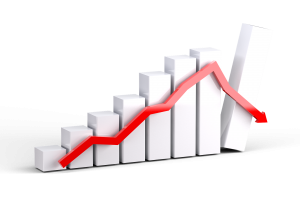What We Should Remember About Bear Markets: Part II

(In continuation with the previous article…)
Some losses won’t be temporary: For sensibly diversified, long-term investors the losses from most bear markets should be temporary (there is a long-run premium attached to equity investing after all), but investors should not naively assume that everything will recover. Imprudent investment decisions will be exposed in bear markets. Inappropriate leverage, unnecessary concentration, and eye-watering valuations tend to bring about permanent losses of capital that time will not heal.
Emotions will dominate: The ability to make good, long-term decisions during a bear market is severely compromised. The emotional strains that investors are going to feel will outweigh rational thought – what happens if things continue to deteriorate and they do nothing? It is during such times that systematic decision-making – such as rebalancing and regular saving – comes to the fore.
Risk tolerance will be examined: Bear markets are the worst possible time to find out about one’s tolerance for risk. Everyone becomes risk-averse when they are losing money. The issue for investors is that experiencing a 37% loss in real life is very different from seeing it portrayed as a hypothetical situation. If possible, investors should avoid reassessing their appetite for risk during tough periods.
Investors will extrapolate: During a bear market, it’s difficult to perceive anything except doom and gloom. Investors might believe that things will keep getting worse – prices will be lower again tomorrow.
Each bear market will be different: Investors should ignore all charts comparing current declines with other bear markets in history, they are entirely unhelpful. There is no reason to believe that such a deeply complex, unpredictable system should mimic patterns of the past. Each bear market is unhappy in its own way.
Bear markets are the ultimate behavioral test: The outcomes of bear markets are more about investors than they are about the market. Investors entering a bear market with identical portfolios will have wildly different results based on the decisions that they make during it.
Source: ‘What We Should Remember About Bear Markets’ by Joe Wiggins published on behaviouralinvestment.com
Asset Multiplier comments:
- It is difficult but necessary to remain a long-term investor during bear markets. During times of uncertainty, investors should resist allowing their emotions to influence their rational decision-making.
- Rather than chasing winners or trying to time the market, investors should concentrate on rebalancing their portfolios and keeping them steady.
- Accepting that stock markets have ups and downs is a key element of investment discipline. This helps investors protect their capital and maintain their calm amidst turbulent markets.
Disclaimer: “The views expressed are for information purposes only. The information provided herein should not be considered as investment advice or research recommendation. The users should rely on their own research and analysis and should consult their own investment advisors to determine the merit, risks, and suitability of the information provided.”
